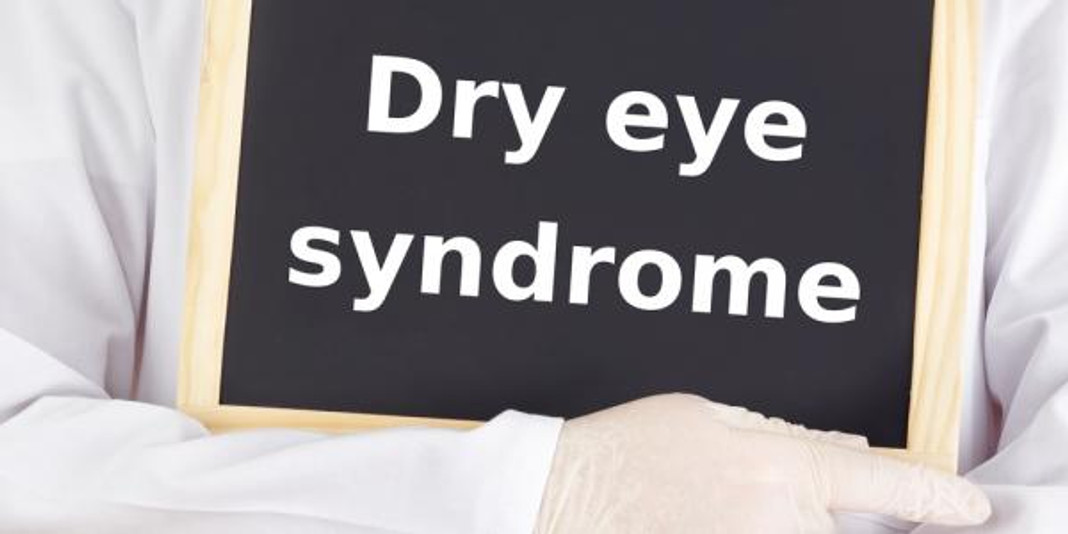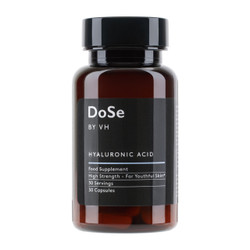
Tackling Dry Eyes Syndrome
Dry Eyes Syndrome, also known as keratoconjunctivitis sicca, is the inflammation of the particular part of the eye called the conjunctiva or the tear gland. This condition affects nearly 30 percent of the adult population and the typical sufferer is female and middle aged, and it is one of the leading causes for visits to the optician.
Dry eyes symptoms can be very uncomfortable and typically the sufferer may experience dry, gritty or scratchy sensations in their eyes. Other symptoms include burning sensations, constant itching, redness, blurred vision and light sensitivity. These symptoms worsen in dry and windy climate especially when the humidity of the air is low. Symptoms also worsen with prolonged use of eyes such as reading, watching television and using the computer. Whilst Dry Eyes Syndrome is not a serious condition, it can really affect the quality of daily life.
What causes Dry Eyes Syndrome?
Normally a thin film of tears coats the eyes to help them keep comfortable. This film also keeps your vision clear throughout the day. The tear film is composed of three layers. The first layer is composed of mucin, which helps to ensure an even spread of the watery middle layer, which is produced by the glands in the upper eyelids and by the tear glands. The outer layer is a thin layer of oils and fats produced by the Meibomian oil glands in the eyelids and the main role of this layer is to prevent the evaporation of water from the eyes.
There are many causal factors that disturb the optimal production of the individual components that form tears and include:
- Exposure to conditions that dry out the tear film.
- Taking medications such as antihistamines and oral contraceptives.
- Inflammation of the eyelids leading to abnormal tear production.
- Structural changes in the eyes associated with the ageing of the body.
- Fatty acid deficiencies particularly the omega 7 essential fats.
- Certain health conditions such as diabetes, arthritis and Sjogren’s which can also cause a dry mouth.
- Hormonal changes.
By far the single biggest causal factor for Dry Eyes Syndrome are hormonal changes as women approach the perimenopause and menopause. There are oestrogen and testosterone receptors on the cornea of the eye and on the Meibomiam Gland which produce the oils and fats. Whilst we do not fully understand dry eyes, what is clear is that there a definite connection between your tears and hormonal imbalances.
How can you treat Dry Eyes Syndrome?
Symptoms of dry eyes might be a warning sign that your body is not detoxifying properly and thus inflammation occurs. This inflammation connection is supported by most ophthalmic practitioners who usually encourage patients to increase their omega 3 intake by way of supplements such as fish oil capsules. There are many dry eyes treatment products on the market. I have always encouraged people to take omega 3 supplements, especially krill oil for all the multiple protective benefits that the omega 3 essential fats offer to our bodies. However, the best treatment for dry eyes should include taking an additional supplement containing omega 7 essential fatty acid such as Omega 7 Sea Buckthorn Oil capsules.
In one particular double-blind trial involving over 100 participants, various measurements were made for the stability of the tear film, tear secretion and so forth. These were carried out at the start, after one month and at the end of the three month study. Scientists reached the conclusion that Sea Buckthorn supplements positively helped to counter the multiple symptoms of dry eyes.
Hyaluronic acid is a remarkable compound that our body manufactures during our youth. It is present in the gap between cells within our body where it is involved in transporting nutrients to the cells as well as removing cell waste material. It is manufactured in abundance in skin where it keeps the skin hydrated, plump and free from wrinkles. It is also found in Bone, Synovial Fluid and Cartilage where it functions as a shock absorber, lubricant and filter, helping to alleviate arthritis, fibromyalgia, joint pain, chronic fatigue and numerous other concerns.
Hyaluronic acid also helps to give shape and volume to the eyes being present in the vitreous humour, a jelly-like compound in the eye, aside from also helping to encourage lubrication. An additional property of hyaluronic acid is that it helps to remove inflammatory compounds and since Dry Eyes Syndrome is considered an inflammation associated concern, using High Strength Hyaluronic Acid Capsules definitely helps many sufferers.
In addition to the use of hyaluronic acid in supplement form, I would also recommend the use of dry eyes drops such as Manuka Honey eye drops for dry eyes. Optimel Manuka Honey Eye Drops contain a high concentration of Manuka Honey to help comfort and soothe the symptoms of dry eyes and unlike artificial tears, these honey eye drops have a greater viscosity so you may only need to use them once a day though you can use them three times a day for chronic dry eyes syndrome. If you wear contact lenses, the use these dry eyes eye drops first and wait for half an hour before inserting your lenses.
Peep Club manufacture simple, quick, and highly effective eye care products developed by optometrists. Peep Club Instant Relief Eye Spray provides fast relief for dry eyes, tired eyes and puffy eyes, whilst their Heated Eye Wand™ Pro is at-home dry eyes treatment which soothes and comforts dry and tired eyes.
Finally, do not forget to ensure that your diet incorporates oily fish and drink at least eight glasses of water in case dehydration is an issue.
DISCLAIMER: The views, opinions and information expressed in this article and on Victoriahealth.com Ltd are those of the author(s) in an editorial context. Victoriahealth.com Ltd cannot be held responsible for any errors or for any consequences arising from the use of the information contained in this editorial or anywhere else on the site. Every effort is made by the editorial and content team to see that no inaccurate or misleading information, opinion or statement appear, nor replace or constitute endorsement from medical bodies or trials unless specified. Victoriahealth.com Ltd accept no liability for the consequences of any inaccurate or misleading data, information, opinion or statement. Information on Victoriahealth.com Ltd and in the editorials is provided for informational purposes only and is not intended as a substitute for the advice provided by your physician or other healthcare professional. You should not use the information on this website or in the editorials for diagnosing or treating a health concern or disease, or for the replacement of prescription medication or other treatment.



